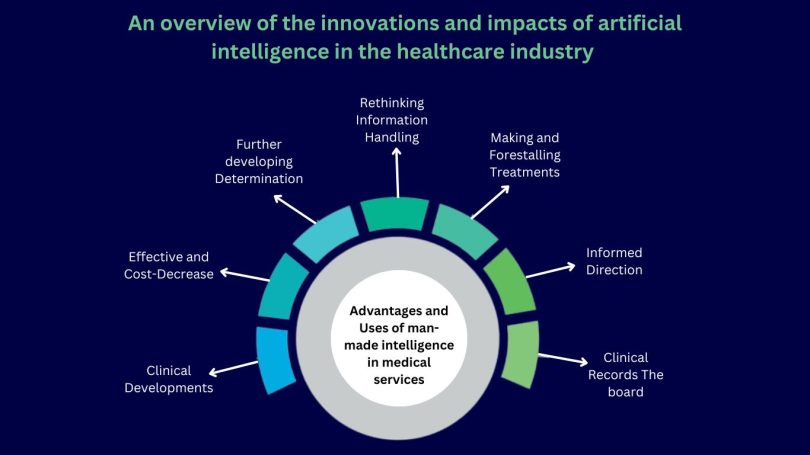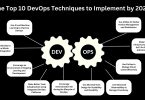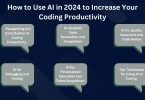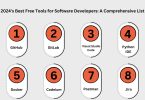Outline:
In the medical services sector, computer-based intelligence, or “man-made consciousness,” has transformed patient selection, care, and monitoring. This innovation takes into account more individualized treatments and more precise judgments, which enormously further develops medical care examination and results. Since computer-based intelligence can rapidly check enormous volumes of clinical information, specialists could find patterns and disease signs that they could have missed in any case. Man-made intelligence has a large number of potential purposes in the medical care industry, from anticipating results from electronic wellbeing data to breaking down radiological pictures for early identification. Medical services frameworks might become more brilliant, quicker, and more effective by carrying out computer-based intelligence into emergency clinics and centers, further developing consideration for a large number of patients internationally. Simulated intelligence in medical services is truly reshaping the business, working on tolerant consideration and reducing supplier expenses.
The healthcare industry is changing due to artificial intelligence (AI), which is propelling improvements in public health management, tailored treatment, administrative effectiveness, and diagnostics. AI technologies provide previously unheard-of chances to increase patient care, expedite processes, and enhance overall healthcare outcomes by utilizing large datasets. This article explores the various uses of AI in healthcare as well as the difficulties in putting it into practice.
Knowing AI in Healthcare
The use of advanced algorithms and data analytics to do tasks that typically need human intelligence is known as artificial intelligence (AI) in healthcare. These duties include making medical diagnoses, evaluating medical records, forecasting patient outcomes, and automating administrative processes. Artificial intelligence (AI) provides useful information that aids healthcare providers in making better decisions and improving patient outcomes by rapidly analyzing large datasets, such as genetic data, medical imaging, and electronic health records (EHR).
Beginning Turns of events and Significant Figures:
The use of computer-based intelligence in medical services began with IBM’s Watson, an AI framework that can give speedy and precise responses to questions. IBM delivered a variant of Watson planned explicitly for the medical services industry in 2011 with an accentuation on regular language handling, or the innovation that disentangles and understands communicated in language. Tech behemoths like Apple, Microsoft, and Amazon are currently making huge interests in computer-based intelligence answers for the medical services industry notwithstanding IBM.
Advantages and Uses of man-made intelligence in medical services:
• Rethinking Information Handling: Working on the treatment of clinical information.
• Further developing Determination: Assisting with a more exact conclusion of sickness.
• Making and Forestalling Treatments: Adding to the formation of treatments.
Assisting with forestalling affliction.
• Informed Direction: Helping medical services suppliers in pursuing more educated
decisions.
• Effective and Cost-Decrease: Time and cash investment funds.
• Clinical Records The board: Empowering better clinical record the executives.
• Clinical Developments: Tracking down clever ways of treating malignant growth.
• Improving Patient Encounters: Upgrading the patient’s involvement with general.
• Faster and More Exact Consideration: Giving patients admittance to mind that is both speedier and more precise.
Key Advances in artificial intelligence medical services:
AI:
Medical care has gone through a change thanks to AI, a vital simulated intelligence part that improves clinical conclusion and therapy. Calculations can recognize patterns and make up to this point incomprehensible precise forecasts about clinical results overwhelmingly of clinical information. With the utilization of this innovation, clinical imaging and patient data can be investigated to find new treatments, which can further develop care and cut costs. Precise illness finding, customized treatment, and the recognizable proof of moment varieties in crucial signs that might highlight conceivable medical conditions are totally made conceivable by AI. One such application is accuracy medication, which utilizations regulated figuring out how to anticipate fruitful treatments in light of patient-explicit information. Besides, profound learning, a part of man-made consciousness, is utilized to applications like regular language handling-based discourse acknowledgment.
Regular Language Translation:
Human language can be deciphered and utilized by PCs on account of normal language handling, or NLP. NLP is used in the medical services industry for various purposes, including expanding the accuracy of findings, assisting clinical techniques, and offering more individualized care. For example, NLP might find appropriate therapies and meds and successfully analyze afflictions from clinical records by extricating significant data. Additionally, NLP gives clinical experts viable instruments for dealing with enormous volumes of perplexing information, accelerating processes that would frequently take significantly longer to finish manually.
Master Frameworks in light of Rules:
During the 1980s, ‘in the event that’ rule-based master frameworks were normal, and they are as yet utilized widely in clinical choice help today. An assortment of rules is incorporated with numerous electronic wellbeing record frameworks (EHRs) as a component of their product bundle. In any case, when the quantity of guidelines rises, they might begin to struggle and get more diligently to follow. Assuming there are significant changes in the information space, refreshing these principles might become difficult.
Important Uses of AI in Healthcare to Enhance Diagnosis:
AI greatly improves the accuracy of diagnosis. Machine learning algorithms can evaluate vast volumes of medical data, including X-rays, MRIs, and CT scans, to identify abnormalities like malignancies and fractures that human experts might overlook. The Lancet Digital Health published a study showing AI systems can diagnose conditions like breast cancer just as effectively as human radiologists. As a result, fewer false positives and negatives will occur. AI-powered early detection can result in prompt interventions, ultimately saving lives.
Personalized Medicine:
By tailoring treatments to each patient’s particular needs and genetic makeup, AI is driving the move toward personalized medicine. AI makes predictions about how people will react to certain therapies by examining genetic information and medical histories. In oncology, where genetic profile-based tailored cancer treatments enhance patient outcomes, this strategy is very advantageous. AI can also predict the course and recurrence of diseases, allowing for proactive chronic condition management.
Accelerating Drug Discovery:
The conventional approach to drug discovery is time-consuming, expensive, and frequently takes more than ten years. AI speeds up this process by identifying interesting medicine candidates by evaluating biological data and chemical components. Vaccines against the COVID-19 pandemic, for instance, were developed much more quickly because to AI. Researchers can better comprehend virus behavior and countermeasures with the help of DeepMind’s AlphaFold, which made very accurate protein structural predictions. Future medical emergencies can be handled more quickly thanks to these developments.
Improving Administrative Efficiency:
AI increases healthcare efficiency by automating administrative duties, which extends beyond clinical applications. Thanks to AI technologies that manage scheduling, billing, and claims processing, healthcare professionals are freed up from administrative tasks. Hospital and clinic procedures can be streamlined by using Natural Language Processing (NLP) algorithms to generate reports, evaluate medical data, and transcribe clinical notes. Virtual assistants and chatbots powered by artificial intelligence can aid patients by resolving inquiries and arranging appointments.
Applications in Analysis and Treatment:
Authentic Setting:
• Early rule-based frameworks focused on precise conclusion and treatment.
• Restricted acknowledgment in clinical practice.
Joining Difficulties:
• Trouble in coordinating simulated intelligence with clinical work processes and EHR frameworks.
Current Upgrades:
• Simulated intelligence upgrading conclusion and treatment plans.
• Simulated intelligence working on the productivity of clinical preliminaries.
EHR Programming:
• A few sellers consolidating restricted simulated intelligence capabilities.
• Critical endeavors required for far reaching mix.
Authoritative Applications:
Simulated intelligence is changing numerous managerial parts of clinical consideration via mechanizing undertakings, for example, information section, claims handling, and arrangement booking. This mechanization saves time for suppliers and medical services associations to zero in on understanding consideration and income cycle the executives. Simulated intelligence can likewise decrease human blunder by giving quicker and more precise ways of surveying wellbeing records, clinical imaging, claims handling, and experimental outcomes. This permits clinical experts to convey better quality patient consideration while keeping up with financial plan productivity.
Challenges for simulated intelligence in medical care:
Information Protection and Security:
• Since such a lot of individual wellbeing information is assembled, this is significant.
• Potential for misuse in the event that not utilized as expected.
Security and Precision for Patients:
• Ensuring man-made intelligence frameworks propose precise and safe suggestions.
Preparing Calculations:
• Empowering simulated intelligence to recognize patterns in persistent information.
• Perceiving the associations between clinical finding and treatments.
• Making exact, customized suggestions for each quiet.
Reconciliation with Current IT Frameworks:
• Effectively coordinating artificial intelligence into the IT foundation presently set up for medical services.
Doctor Acknowledgment and Trust:
• Getting the certainty and backing of clinical experts.
Government Guideline Consistence:
• Ensuring computer-based intelligence frameworks follow lawful necessities and mandates.
The Use of computer-based intelligence in medical care:
The mid-21st century saw a huge expansion in interest in man-made consciousness (artificial intelligence) in medical care because of improvements in innovation and information examination. The genuine huge advantage showed up when it became obvious that computerized reasoning (man-made intelligence) could settle the absolute most basic issues confronting the medical care industry, as customized medication and precise finding. As per Statista, the artificial intelligence medical care market is anticipated to develop from its assessed $11 billion of every 2021 to $187 billion by 2030, a huge shift that will influence the entire area.
Man-made intelligence’s Possible in Medical services from here on out:
Artificial intelligence in medical services has a promising future loaded with potential open doors for extra development. Simulated intelligence can accelerate infection recognition, offer individualized treatment programs, and robotize strategies like diagnostics and prescription revelation. It additionally vows to bring down medical care conveyance costs, raise security, and upgrade patient results. Man-made intelligence innovation will have an undeniably greater impact in medical services as it creates, affirming its place as an imperative instrument in contemporary medication.
AI’s Potential in Healthcare
AI in healthcare has a bright future ahead of it, with applications expected to grow in fields like robotic surgery, predictive analytics, and remote monitoring. Wearable technology driven by AI will make it easier to monitor patients’ health continuously, providing real-time information about their ailments and lowering the number of readmissions to hospitals. Predictive analytics will enable early disease identification and improved preventative care. AI has the potential to improve surgical techniques as well, resulting in less intrusive and more accurate operations. As AI technology develops further, its function in healthcare will change from that of an aid to that of a cooperative partner for medical practitioners, promoting a more proactive, individualized, and effective approach to patient care.
In brief:
AI is transforming healthcare by bringing about notable advancements in drug discovery, customized therapy, diagnostics, and administrative effectiveness. The potential advantages of AI greatly exceed the hazards, even though issues like bias, data privacy, and the requirement for explainable AI still exist. AI can continue to spur innovation in healthcare by tackling these issues with careful regulation and cooperation, improving patient outcomes and expanding access to high-quality treatment for all.
Man-made intelligence in medical care is an upset as opposed to only a specialized improvement. Medical services are currently more viable, exact, and individualized on the grounds that to the change in outlook achieved by the combination of simulated intelligence into the clinical business. Computer based intelligence will turn into an extremely valuable instrument as our associated advanced world creates, reforming the manner in which doctors give care and treat patients. Simulated intelligence in medical care holds extraordinary commitment for progresses, better understanding encounters, and further developed wellbeing results from now on. The fundamental deterrent confronting artificial intelligence in medical care isn’t its adequacy, yet rather its digestion into routine clinical methods.
Clinical experts may ultimately move into callings that require extraordinarily human capacities, particularly those including higher request mental cycles. The main medical care suppliers that won’t benefit completely from computer-based intelligence improvements are the individuals who rule against using it.








